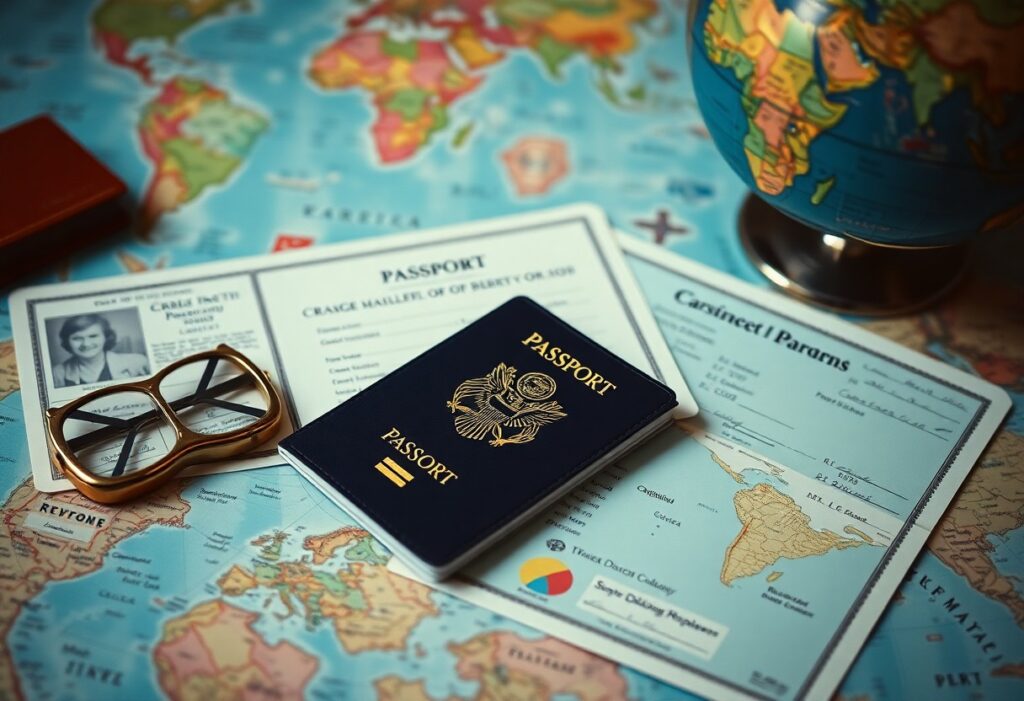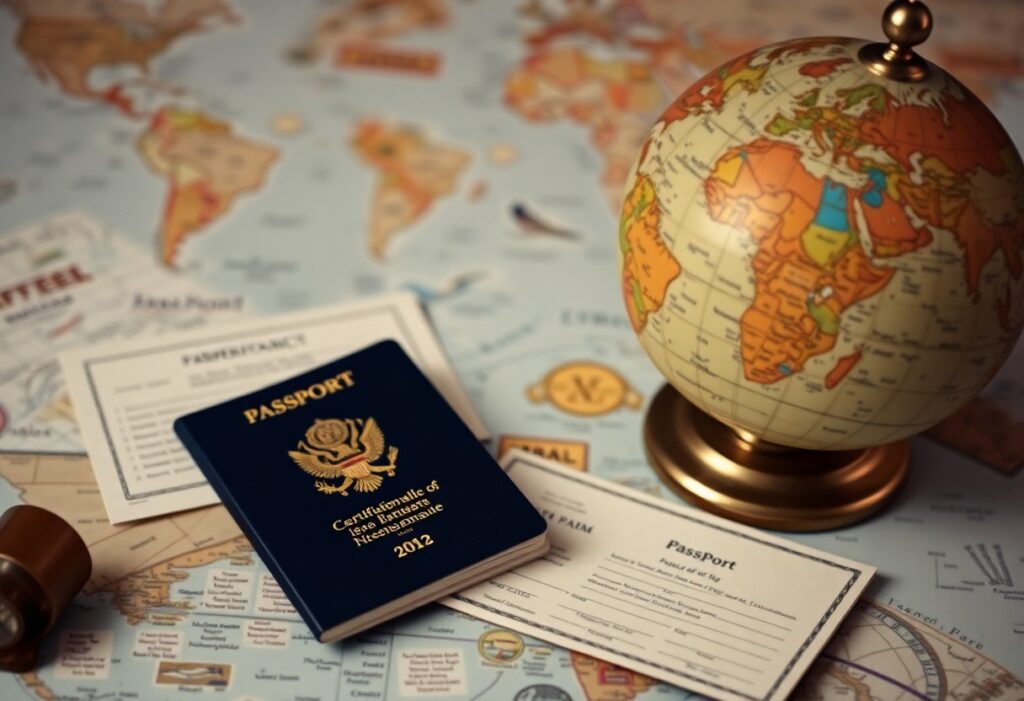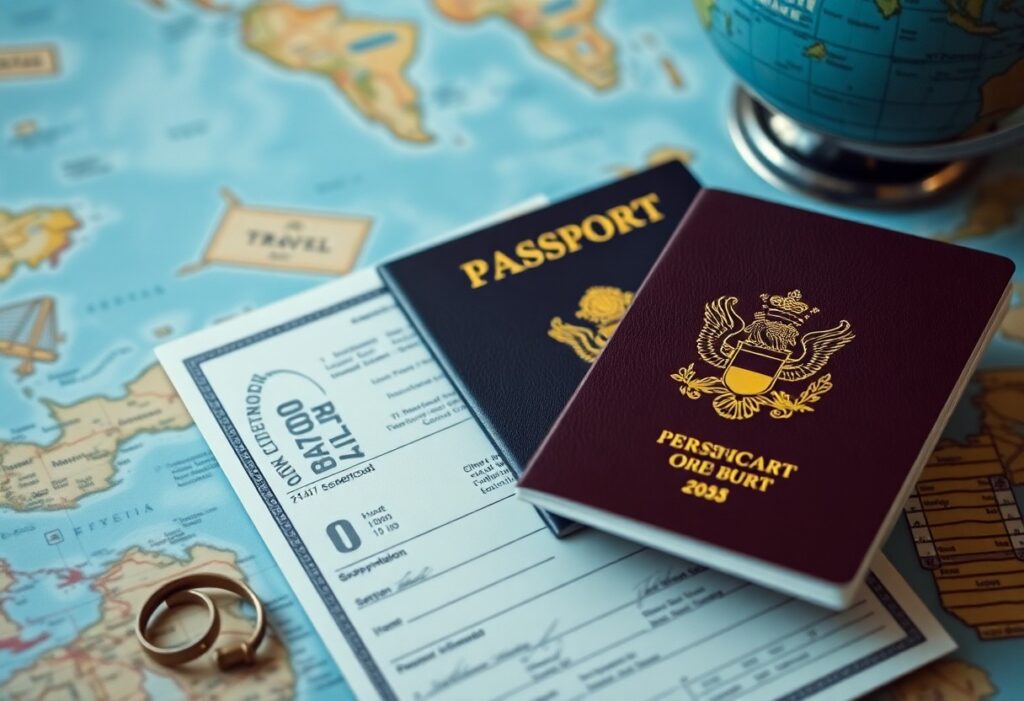Certificate of Birth Translations play a vital role in your international travel preparations. Your birth certificate serves as a fundamental identity document, but when crossing borders, you’ll often need it in the official language of your destination country. Foreign embassies, immigration offices, and various authorities require translated birth certificates to verify your identity and process your travel-related applications. Understanding this requirement early in your travel planning helps you avoid last-minute complications and ensures your documentation meets all necessary standards.
Legal Requirements
The translation of your birth certificate must comply with specific legal standards set by both your destination country and international authorities. Most countries require certified translations performed by authorized translators or agencies, ensuring the documents maintain their legal validity across borders.
International Travel Regulations
Among the various document requirements for international travel, your translated birth certificate needs to meet stringent authentication standards. Immigration authorities in many countries require that your birth certificate translation includes all original seals, stamps, and signatures, with some nations demanding additional apostille certification for legal recognition.
Document Validity Standards
After submitting your birth certificate for translation, you need to ensure it meets the specific formatting and certification requirements of your destination country. Each nation has its own set of standards regarding document layout, seal placement, and certification methods.
But there’s more to consider about document validity. You should verify that your translated birth certificate includes all the crucial elements: your full name, date and place of birth, parents’ names, and any official registrations. Many countries require translations completed within the last six months, and some may need notarization or apostille certification for added authenticity.

Essential Travel Purposes
It’s important to understand that a translated birth certificate serves multiple purposes during your international travel. When crossing borders, this document helps verify your identity, age, and nationality. Your translated birth certificate becomes a vital tool for various administrative procedures abroad, from opening bank accounts to registering for local services.
Visa Applications
Besides your passport, many countries require a translated birth certificate as part of your visa application process. Your chances of visa approval increase significantly when you present professionally translated documentation. According to recent immigration statistics, 35% of visa rejections occur due to improper document translations, making it crucial to have your birth certificate accurately translated by certified professionals.
Immigration Requirements
After arriving at your destination, you’ll need your translated birth certificate for various immigration procedures. Your document must comply with local regulations and be authenticated by relevant authorities. Immigration offices in most countries require certified translations that maintain the exact format and content of your original birth certificate.
Considering the complexity of immigration laws, your translated birth certificate needs to meet specific formatting and certification requirements. You’ll find that different countries have varying standards – some may require apostille certification, while others might need additional notarization. For instance, European Union countries typically require translations to be completed by court-approved translators, while Asian countries often need translations verified by their respective embassies.
Translation Process
You need to provide a clear scan or photo of your birth certificate to initiate the translation process. Your document undergoes a thorough examination by our certified translators who maintain the exact format, seals, and signatures while converting the content into your target language. The translation includes all the vital information from your original certificate, ensuring compliance with international travel requirements.
Professional Standards
For your birth certificate of birth translation to be accepted internationally, it must meet specific professional standards. Your translator must be certified and capable of providing accurate translations that maintain the legal validity of the original document. All translations come with a signed certificate of accuracy, confirming the translation’s authenticity and compliance with official requirements.
Quality Assurance
For optimal accuracy, your translated birth certificate undergoes a rigorous three-step quality assurance process. Your document is first translated by a certified translator, then reviewed by a senior linguist, and finally checked by a quality assurance specialist to ensure perfect accuracy and formatting.
Hence, you receive a translation that meets the highest quality standards. Your translated birth certificate comes with a certification of accuracy, confirming that all information has been precisely translated. This comprehensive approach ensures your document will be accepted by immigration authorities, educational institutions, and government agencies worldwide.
Document Security
Once again, your birth certificate contains sensitive personal information that requires careful handling during the translation process. At MovaPro Translations, we implement robust security protocols to protect your documents from unauthorized access, data breaches, or misuse. Our secure document handling system ensures your original birth certificate and its translation remain protected throughout the entire process.
Information Protection
Between receiving your original document and delivering the translated version, your personal data goes through multiple layers of security. You can rest assured that your birth certificate information is processed in a controlled environment, with restricted access limited to authorized translators only. Our digital security measures include encrypted storage and secure file transfer protocols.
Confidentiality Measures
Protection of your personal information stands at the core of our translation services. You receive a unique tracking number to monitor your document’s status, while our translators sign strict confidentiality agreements. Our secure systems maintain detailed logs of who accesses your information, ensuring complete transparency and accountability.
Consequently, when you choose our services for your birth certificate translation, you benefit from our comprehensive security framework. Your documents are processed in accordance with international data protection standards, and our security protocols are regularly updated to address emerging threats. This systematic approach ensures your personal information remains confidential while maintaining the efficiency of our translation services.

Language Specifications
Keep in mind that your birth certificate translation must match the official language of your destination country. Most authorities require translations to be completed by certified professionals who can verify the accuracy and authenticity of every detail in your document. You need to ensure your translation meets specific formatting requirements and includes all necessary certifications.
Common Language Pairs
Along with English-to-Thai translations, you’ll find that Spanish, French, German, and Mandarin Chinese are among the most requested language pairs for birth certificate translations. Your choice of language pair depends on your destination country and the specific requirements of the authorities you’ll be dealing with. We offer expertise in over 50 language combinations to meet your travel needs.
Regional Requirements
Behind every translation requirement lies specific regional regulations that you need to follow. Different countries have varying standards for accepting translated documents. Your birth certificate translation might need additional authentication steps, such as notarization or apostille certification, depending on your destination.
Understanding regional requirements can save you time and prevent travel delays. You should check if your destination country is part of the Hague Convention, as this affects the authentication process. Some regions might require translations only from locally certified translators, while others accept internationally recognized certifications. Your advance research into these specifications will ensure a smooth travel experience.

Time Considerations
Unlike regular document processing, birth certificate translation requires careful attention to timing. You need to plan ahead when requesting a translation, as Do I need to translate my birth certificate if I’m an immigrant considering relocation is a common concern that needs addressing well before your travel date. Your translation timeline should account for potential delays in document verification and embassy authentication processes.
Processing Periods
Your birth certificate translation typically takes 2-3 business days for standard service. You can opt for expedited service if you need your documents faster, with same-day translation available for urgent requests. Your specific timeline may vary based on the complexity of the document and the target language requirements.
Submission Guidelines
Beside the original birth certificate, you need to provide clear, legible scans or photocopies of all pages. Your submission should include any existing certifications or apostilles attached to the original document, and specify your target language requirements.
Understanding proper submission procedures helps streamline your translation process. Your documents must be complete and in good condition, with all seals and signatures visible. You can submit your documents through our secure online portal, ensuring your sensitive information remains protected throughout the translation process.
To wrap up
The necessity of a translated birth certificate for your international travel cannot be understated. You’ll find this document crucial for various travel-related processes, from visa applications to potential residency requirements in your destination country. By ensuring your birth certificate is professionally translated, you protect yourself from potential delays or complications during your journey. When you choose a certified translation service, you gain peace of mind knowing your document meets all legal requirements and will be accepted by foreign authorities. Your travel plans deserve the security that comes with properly translated documentation.
FAQ
Q: What makes a certificate of birth translation valid for international travel?
A: A valid birth certificate of birth translation must be completed by a certified professional translator or translation agency. The translation needs to include all original information accurately, maintain the same format as the source document, and be accompanied by a certificate of accuracy. Some countries may also require additional authentication such as notarization or apostille certification.
Q: When should I start the birth certificate translation process before my trip?
A: You should initiate the translation process at least 6-8 weeks before your intended travel date. This timeline allows for potential processing delays, additional authentication requirements, and any necessary revisions. It’s also important to verify specific requirements with your destination country’s embassy or consulate, as some may have different processing timeframes or special requirements.
Q: What are the consequences of traveling without a properly translated birth certificate?
A: Traveling without a properly translated birth certificate can result in serious complications. You may be denied entry at border control, face delays or rejection in visa processing, be unable to register for educational institutions, or experience difficulties with legal proceedings in the foreign country. Immigration officials might also question the authenticity of your documents, potentially leading to additional screening or even deportation.



